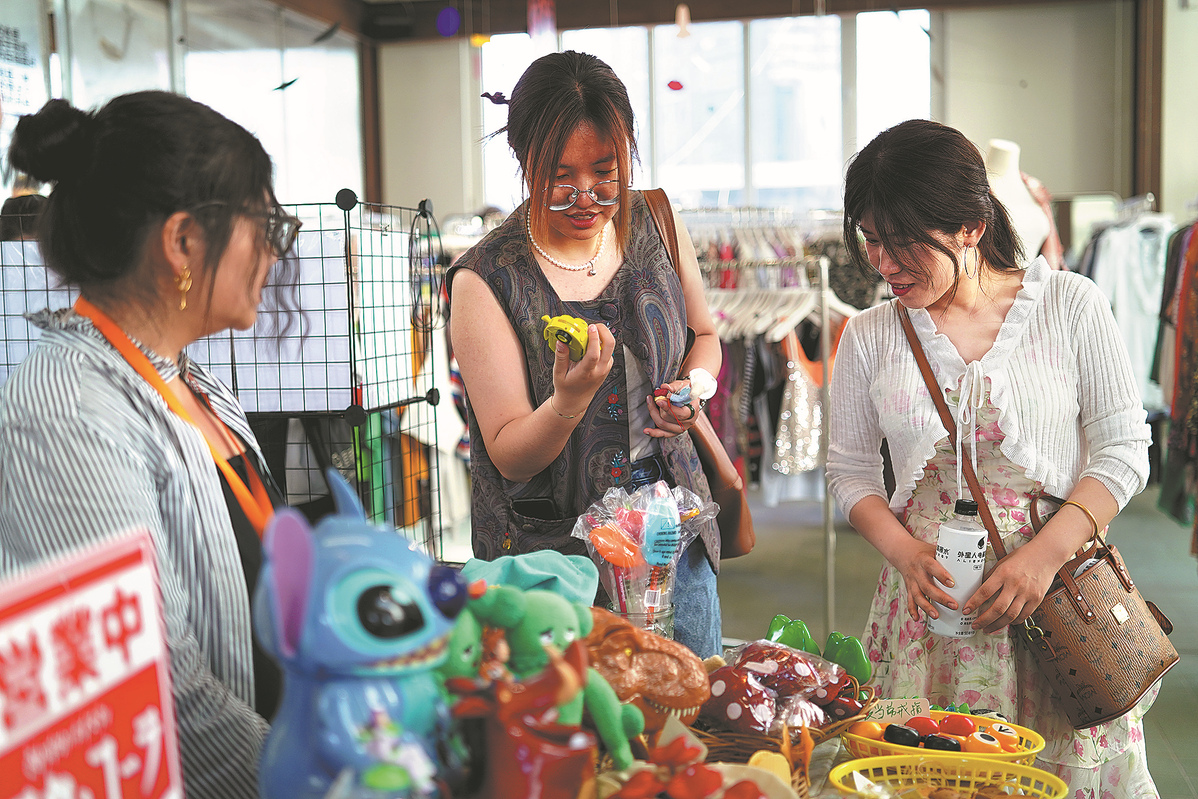Booming recycling market benefits environment
Growing trend of selling used goods contributes to greener lifestyle


Trading for profit
The transaction volume of China's used goods market surpassed 1 trillion yuan ($139.9 billion) in 2020, and is expected to reach 3 trillion yuan in 2025, according to a report issued by the Institute of Energy, Environment and Economy of Tsinghua University.
Data from Xianyu, one of China's largest platforms for trading secondhand products, shows that the daily transaction volume on the platform has exceeded 1 billion yuan. Over the past year, about 4 million secondhand items were listed on Xianyu on a daily basis.
Forty-three percent of users are from the post-1995 generation, and 22 percent are from the post-2000 generation, the data showed. In 2023, the average post-1995 user on Xianyu earned 2,700 yuan, with young people discovering the "wealth secret" in trading secondhand goods.
The generational change is also reflected in a stronger awareness of how consumption impacts the environment.
The understanding of green consumption among those born in the 1990s and 2000s is significantly higher than other age groups in China, reaching 70 percent and 79 percent respectively, according to the Green Development Report on E-commerce in China released in 2023.
Wen Tianyi, a 21-year-old advertising major at a university in Beijing, spends around 1,000 to 2,000 yuan on secondhand goods every year and gets rid of around 10 items annually.
"During the first two years of university, I had little concept of spending money, so I ended up buying many useless items here and there," she said.
"I started paying attention to and getting rid of idle items during my freshman year, driven by the thought of wanting to get some cash back."
The first unused item Wen sold on Xianyu was a bottle of perfume she bought online.
Her initial reason for purchasing secondhand items was simply to save money. Many of the items were relatively new, having been used only a few times. However, because they were secondhand the prices were greatly discounted.
"Key differences between buying new items and secondhand ones are lower costs but higher after-sales risks (no returns, counterfeit goods, questionable conditions), and relying on mutual trust between strangers rather than a service provider-client relationship," Wen said.
She said buying and selling secondhand merchandise had reshaped her ideas on consumption. "Previously, items might have just been left unused, but now they can be revitalized with the incentive of earning some money, thereby supporting sustainable consumption," Wen said.
She has even adopted a "secondhand mentality" for making new purchases and considers how much an item will depreciate before being resold. This hit home when she sold 10 kilograms of clothing she had paid nearly 10,000 yuan for, to a clothing recycler for just 6 yuan.
A blogger on Xiaohongshu, she advocates a minimalist approach to life and is more focused on saving money and getting rid of her unused goods.
"After dealing with idle items and engaging in secondhand consumption, I have embraced the concept of minimalist living. Moving from constantly buying to decluttering and letting go, I may have found a lifestyle that truly suits me," she said.























